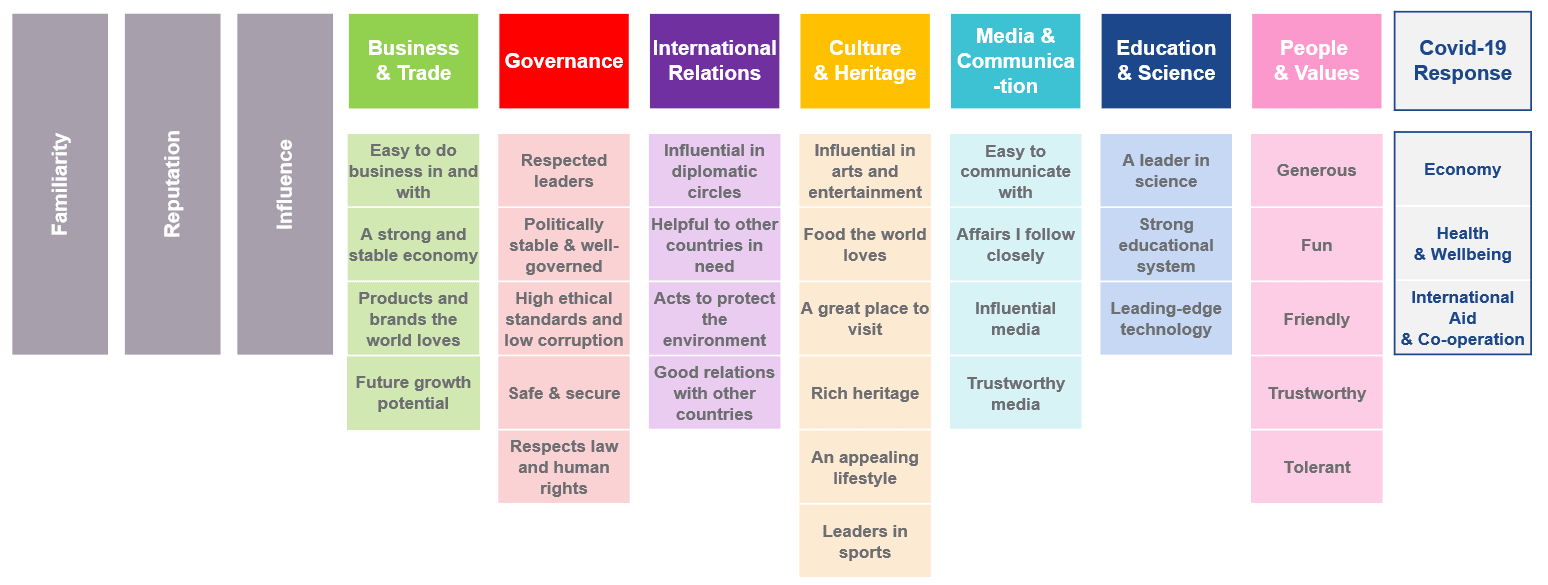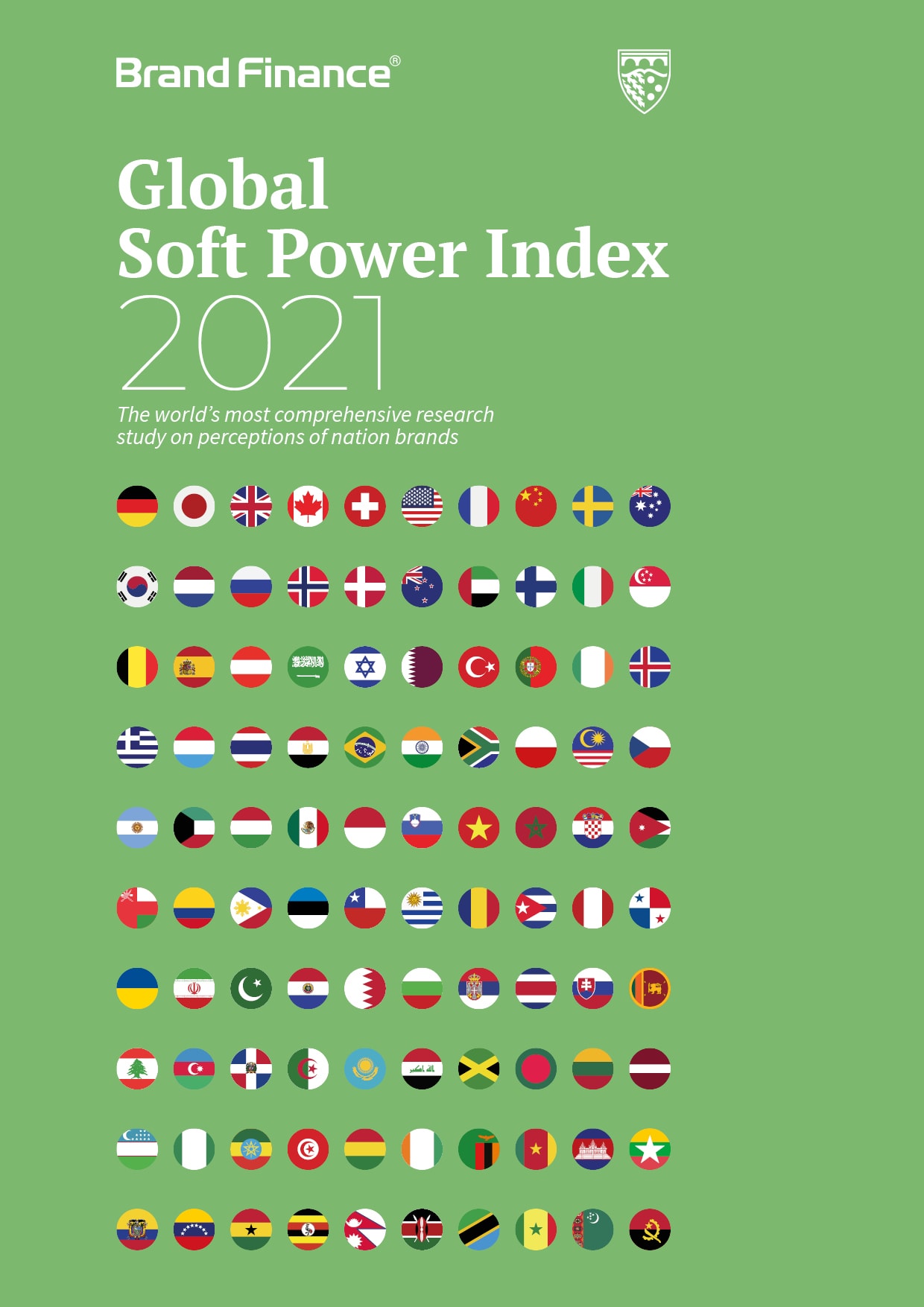Collaboration in the international arena enhances positive perceptions of your place brand and builds up your soft power, which in turn is the key to implementing your strategic agenda. Reluctance to collaborate undermines your soft power and can set you back relative to your peers.
The more you are seen to be positively interacting with others and – importantly – the more change you manage to effect, the greater the benefits to your brand perceptions and the greater your soft power, which you can then use to collaborate with others more effectively in an ever-expanding virtuous circle.
Consequently, the more you collaborate and the more soft power you wield, the greater your influence on others and the easier it is for you to promote your strategic interests and achieve your strategic goals. Collaboration pays off. Soft power is essential. This is something that most place brands understand intuitively, but there is also academic and research evidence to support this assertion.
Collaboration in theory…

Soft power is a term coined by Harvard professor Joseph Nye in the late 1980s. It is the ability to influence other actors in the international arena through attraction or persuasion rather than coercion. The concept fits in with the neoliberal view of international relations which claims that complex interdependence between actors reduces the need for the deployment of hard power and encourages the use of soft power instead. In addition, neoliberals see the competition between international actors as a non-zero-sum game – a system which allows multiple actors to benefit at the same time without necessarily having their way at the expense of others.
Sounds familiar? Indeed, collaboration is the accepted modus operandi in our multilateral international order that in its very setup rests mostly on neoliberal principles. The rules are clear: to attract or persuade others to collaborate – you need soft power; and soft power can in turn be built up further through successful collaboration. This makes collaboration and soft power – to paraphrase the title of Nye’s seminal publication – ‘the means to success in world politics’ as well as business, trade, investment, tourism, and any other field with an international dimension.
…and collaboration in practice
There is also research-based evidence that collaboration can benefit your place brand. With a 75,000-respondent strong survey conducted in over 100 countries worldwide, Brand Finance’s Global Soft Power Index is the world’s most comprehensive research study on perceptions of nation brands, but lessons from it are applicable to place brands of all kinds. The Index covers a number of survey statements that help assess the perceptions of a nation brand’s collaborative disposition – across different soft power pillars, such as easy to do business with, helpful to countries in need, and easy to communicate with.
However, the perception boost is not limited to the particular policy areas where collaboration is taking place, and is usually more far-reaching through a general enhancement of the building blocks of soft power – Familiarity, Reputation, and Influence of the collaborating nation brands. The key pillar that collaboration also has a particular impact on is People & Values, which captures the perceptions of a nation’s general attitude to others.

What illustrates best the importance of collaboration for soft power is perhaps a case study of a nation that recently saw its soft power significantly undermined by its reluctance to collaborate with others. United States recorded a steep decline in the Global Soft Power Index 2021 compared to the previous year’s results, making it the ranking’s fastest-falling nation.
Alongside a haphazard COVID-19 response, President Trump’s unilateralist and combative international policy guided by the ‘America First’ slogan, cost the US its position as the world’s soft power superpower, and a fall from 1st to 6th position in the Index. To name just a few decisions that went against the spirit of international collaboration, the Trump administration withdrew from WHO, UNESCO, the Paris Agreement, and important security treaties with Russia and Iran, as well as stopped paying its UN contributions and steered the nation on a crash course with traditional allies.

America’s fall from soft power grace was most visible in the Reputation metric where it dropped from 13th to 21st, and across the People & Values pillar where it saw lower ranks for all statements, with the slide from 5th to 50th for friendly probably the most shocking. Following Trump’s hesitance to acknowledge the scale and severity of the coronavirus crisis and failure to act accordingly, the US also found itself at the very bottom of the COVID-19 Response metric. However, the general public ranked the nation 105th not just for its efforts to protect the health and wellbeing of its citizens, but also for its failure to offer international aid and co-operation.
In the face of these wide-ranging reputational challenges, the Biden administration has an important task to rebuild America’s international credibility. Interestingly, some of President Biden’s first decisions have been to re-join the international organisations and agreements which his predecessor had left and to offer gestures of good will towards America’s traditional allies in Europe and beyond. As our data shows, the US is still perceived as highly influential in international relations, which should help its reputation to recover under President Biden’s new ‘America is Back’ policy.
What now?
The example of the United States shows that collaboration is absolutely essential not even for place brands to succeed in the soft power game, but to make sure they stay in that game in the first place. The single most serious global crisis since World War II – the COVID-19 pandemic – will be the biggest test for international collaboration in a long time. Will the developed nations share their vaccine supplies with the developing world? Will WHO and other multilateral organisations stand up to the challenge? Will the global fight against climate change suffer at the expense of the focus shifting to the health crisis at hand? Time will tell, but those that fail to engage with the international community, should probably start planning their image-saving campaigns already today.
The article was first published in the City Nation Place whitepaper "Collaboration is king: identifying the key opportunities for collaboration in place branding".

